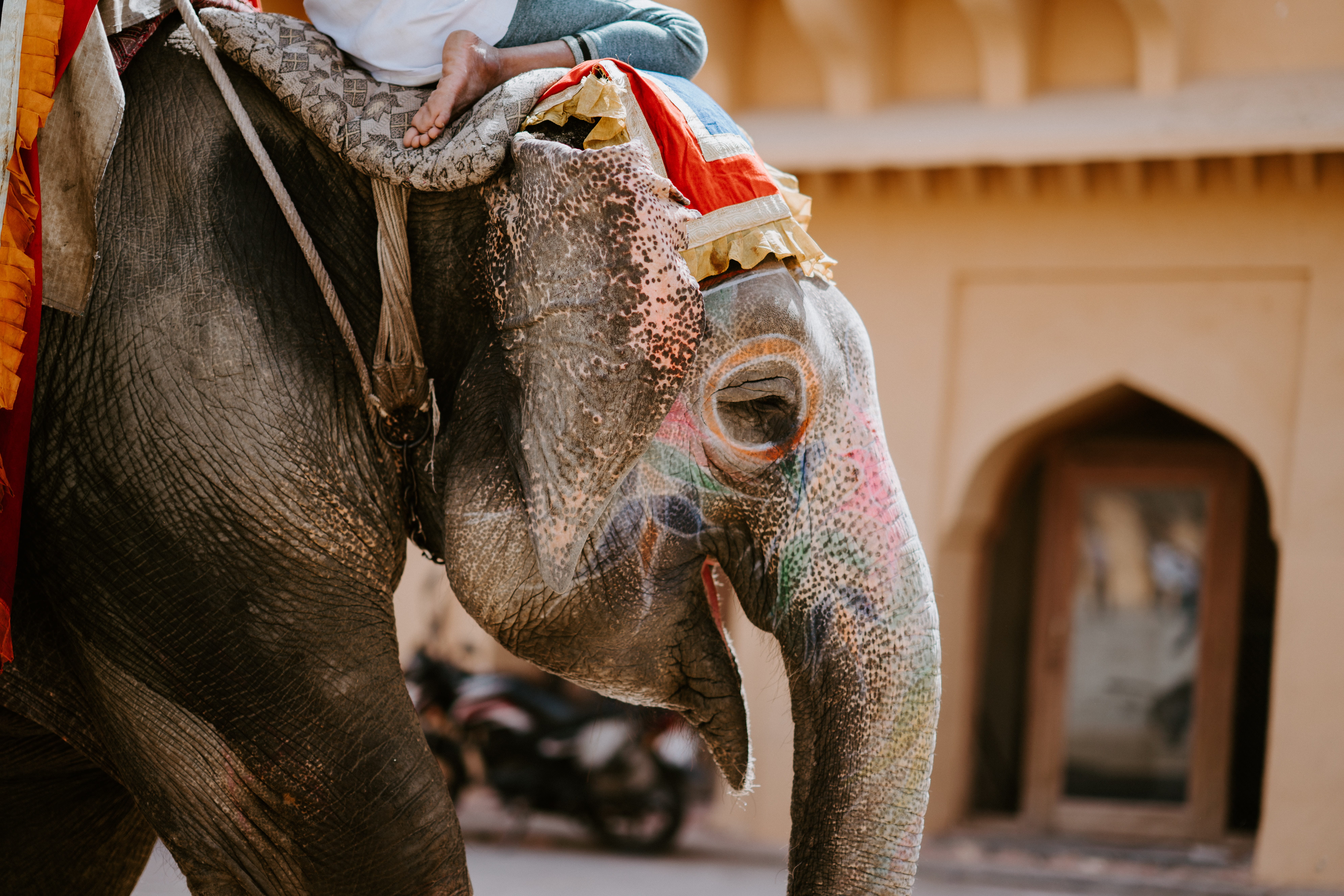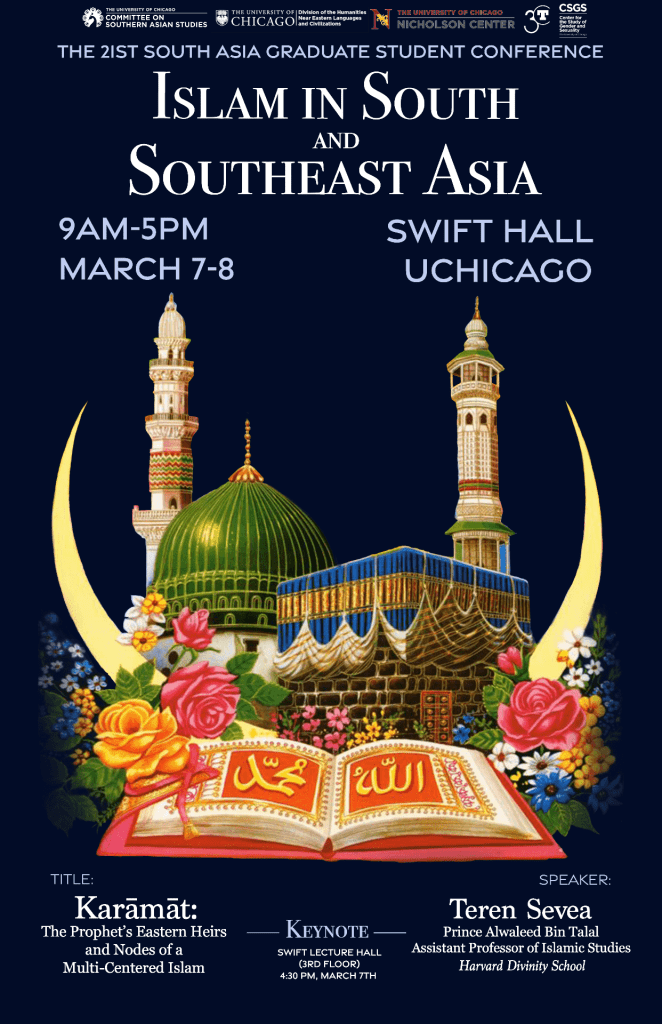Events

Upcoming Events
All COSAS events are free and open to the public.
Event Archive
TAPSA: Rumi’s Masnavi in South Asia: From Manuscript to Print
Thursday, April 18, 2024 - 5pm, Foster Hall 103 Shariq Khan, PhD Candidate, South Asian Languages and Civilizations, University of Chicago This talk explores the shift from manuscript to print of Rumi's Masnavi in South Asia in the nineteenth century. By paying...
Southern Asia Seminar: Cold War Print Cultures: An Alternative Genealogy of Literary Activism in India
Thursday, April 11, 2024 - 5pm, Foster Hall 103 Laetitia Zecchini, Director of the IRL 'Humanities' CNRS, University of Chicago This presentation discusses the role played by print – and especially periodical – culture - during the Cold War. “Pressing the Fight”...
Southern Asia Seminar: Screenwriting and the First Indian Talkies: Pedagogy, Precarity and the Parsi Theatre
Thursday, April 4, 2024 - 5pm, Foster Hall 103 Rakesh Sengupta, Assistant Professor, Cinema Studies Institute, University of Toronto The arrival of talkies in the early 1930s was an important historical juncture in the aesthetic and economic reformation of Indian...
Prahlad Singh Tipaniya and Kabir Singers
Sunday, March 31, 2024 - 4pm, Logan Center for the Arts Penthouse Prahlad Singh Tipaniya is an internationally acclaimed folk singer from the village of Lunyakhedi, Madhya Pradesh. He is renowned for his singing and interpretation of Kabir and other Hindi poets...
TAPSA: Osman: The Prophetic Journey of a Rohingya Refugee Musician
Thursday, March 28, 2024 - 5pm, Foster Hall 103 Tomal Hossain, PhD Candidate, Music Department, University of Chicago This TAPSA session will feature a hybrid conversation between Tomal Hossain and Osman Goni, a Rohingya refugee musician based in Kutupalong...
Music and Musicians in Late Mughal India: Histories of the Ephemeral, 1748–1858
Friday, March 22, 2024 - 3:30pm, Fulton Recital Hall, Goodspeed Hall, 4th Floor Katherine Schofield, Senior Lecturer, Department of Music, King’s College London Katherine Schofield will be presenting the conclusions of her new book, Music and Musicians in Late...
Southern Asia Seminar: The Love Tub of Duff: Christianity, Conversion and the Law in Colonial Calcutta
Thursday, March 21, 2024 - 5pm, Foster Hall 103 Mou Banerjee, Assistant Professor, Department of History, University of Wisconsin-Madison This talk examines the growing unease in Calcutta’s Hindu elite society over the power of the Christian missionary as teacher,...
SAGSC XXI: South Asia Graduate Student Conference
Islam in South and Southeast Asia Join us for our 21st Annual South Asia Graduate Student Conference! This year's conference, ISLAM IN SOUTH & SOUTHEAST ASIA, welcomes keynote speaker Teren Sevea, who delivers his lecture, Karāmāt: The Prophet's Eastern Heirs...
TAPSA: Language Use and Identity Constructions among mixed-race Indo-Fijians
Steven Castro, PhD Student, Linguistics, University of Chicago Language Use and Identity Constructions among mixed-race Indo-Fijians This research project examines the role of language variation in the conceptualization and lived experiences of race and mixedness...
Southern Asia Seminar: Maximum Pressure: How Refugee Repatriation Shapes Conflict
Christopher Blair, Assistant Professor, Department of Politics, Princeton University Maximum Pressure: How Refugee Repatriation Shapes Conflict How does mass refugee return shape conflict dynamics in destination communities? In 2018, the Trump Administration...
